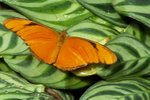 (Photo source)
(Photo source)When our youngest son was a toddler, we visited relatives in North Fort Myers, Florida. Summer home of Thomas Alva Edison and vacation location for his buddies Henry Ford and Harvey Firestone -- different era -- but same area.
One of the highlights for all of us Midwesterners was a trip to Fort Myers Beach where we fed the seagulls. It always astounds me and makes me feel a part of the universe when nature accepts me. Maybe it comes from living with cats and getting a lot of rejection from them.
But the day those birds spread their wings and then daintily nipped bits of hot dog buns from our finger tips and at times off of our plates when we weren't looking -- I fell in love. Now maybe that sounds weird because often these non-cuddly birds are referred to as garbage disposals.
These garbage disposals eat fish and small critters as well as human food and when they're out over the ocean more often than not while nabbing a bit of shrimp or plankton, they ingest plastic. Since by weight there is basically six times more plastic in the ocean than plankton, all seabirds, fish, and other aquatic critters are eating plastic. The birds are swallowing it, regurgitating it and taking it back to their babies. Dead birds on the beach, decomposed to the point that stomach contents are exposed, reveal pop bottle caps, and plastic disks and all manner of plastic from the trash dumped.
Plastic never goes away.
It may breakdown or wear down into smaller pieces and even plastic dust, but it never turns into anything but plastic. Several videos, including one from the television news program, Nightline, show the situation.
Beach sand -- made from the wearing down of rocks and coral -- are now showing another component. You guessed it -- plastic. We have plastic sand.
Perhaps more insidious than the oil spills, this plastic trash is turning our ocean into plastic soup. Birds who eat jelly fish mistake shredded plastic bags for their natural food source. They eat the plastic and get no nutrition, cannot digest it, sometimes it simply stays in their digestive system and they starve to death.
I've been walking into our local grocery store, forgetting every week to bring bags for my groceries. I say I will recycle the bags to the library for them to hand out to customers to put their books in. No more.
I do not want to contribute one more sack to the ocean garbage dump. If I could find some way to never purchase another disposable plastic container -- I would. Maybe if we all find ways to stop contributing to the waste of this planet, we can all live a little longer and a lot better.
Oh, just thought I'd throw in another kind of waste that is the subject of a book I plan to check out: "The Big Necessity" by Rose George. It is about human waste. Recently we wa
 tched the movie: Slumdog Millionaire and there is a latrine moment. I didn't understand the reason for the one brother to guard the door while his younger brother was inside squatting over an open hole filled with human waste. But according to an intro to this book in the Indian slum 60,000 people share 10 toilets.
tched the movie: Slumdog Millionaire and there is a latrine moment. I didn't understand the reason for the one brother to guard the door while his younger brother was inside squatting over an open hole filled with human waste. But according to an intro to this book in the Indian slum 60,000 people share 10 toilets.And if you think the ocean and land pollution are where it ends -- think about space junk. Jupiter and Saturn have rings, well so does the earth only ours is a ring of junk. (see photo of space junk)
Of course there is also light pollution and air pollution but that's for another blog.
Sorry, if you are looking for an upside to this blog, I don't have one. All of this garbage, plastic, pollution doesn't just concern me -- it is turning into a nightmare that haunts me even during my waking moments. I think it should haunt all of us.






















